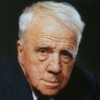To a talkative fellow, who poured out a torrent of words and then said, “Let’s hope I haven’t been boring you with my chatter!” he replied, “No, by Zeus, I haven’t been listening.”
[πρὸς τὸν εἰπόντα ἀδολέσχην, ἐπειδὴ αὐτοῦ πολλὰ κατήντλησε, “μήτι σου κατεφλυάρησα;” “μὰ Δί᾽,” εἶπεν: “οὐ γάρ σοι προσεῖχον.]
Aristotle (384-322 BC) Greek philosopher
Attributed in Diogenes Laërtius, Lives and Opinions of Eminent Philosophers [Vitae Philosophorum], Book 5, sec. 11 [tr. Mensch (2018)]
(Source)
(Source (Greek)). Alternate translations:
A chattering fellow, who had been abusing him, said to him, “Have not I been jeering you properly?” “Not that I know of,” said he, “for I have not been listening to you.”
[tr. Yonge (1853)]
To the chatterbox who poured out a flood of talk upon him and then inquired, "Have I bored you to death with my chatter?" he replied, "No, indeed; for I was not attending to you."
[tr. Hicks (1925), sec. 20]
To the man talking endlessly when he assailed him with words and asked “Have I worn you out with nonsense”, he said “By Zeus, no! I wasn’t listening to you.”
[tr. @sentantiq (2016)]
Quotations about:
natter
Note not all quotations have been tagged, so Search may find additional quotes on this topic.
When the eagles are silent, the parrots begin to jabber.
Winston Churchill (1874-1965) British statesman and author
Comment (16 May 1945)
(Source)
Churchill used this phrase on multiple occasions over the years. This one, quoted by Field Marshal Alan Brooke, War Diaries (2001), was directed at the post-war complaints of Tito and DeGaulle.
I think the author who speaks about his own books is almost as bad as a mother who talks about her own children.
Benjamin Disraeli (1804-1881) English politician and author
Speech, Banquet to Lord Rector, University of Glasgow (19 Nov 1870)
(Source)
The more you say, the less people remember.
The fewer the words, the greater the profit.François de Sales (1567-1622) French bishop, saint, writer [a.k.a. Francis de Sales, b. François de Boisy]
(Attributed)
In S.A. Bent, comp., Familiar Short Sayings of Great Men (1887). Usually attributed, due to structure of that reference, to Francois Fénelon.







